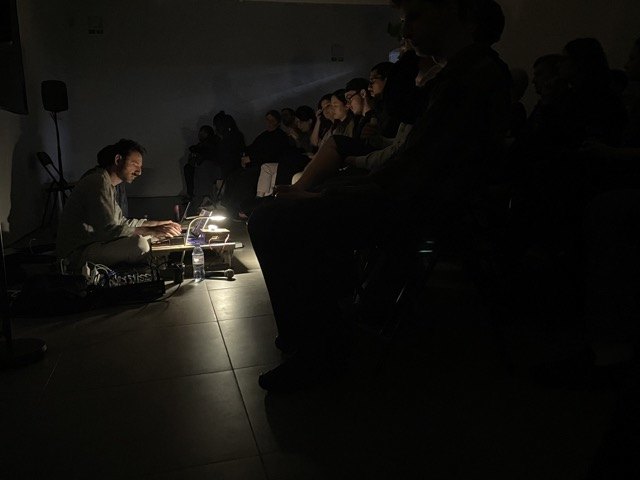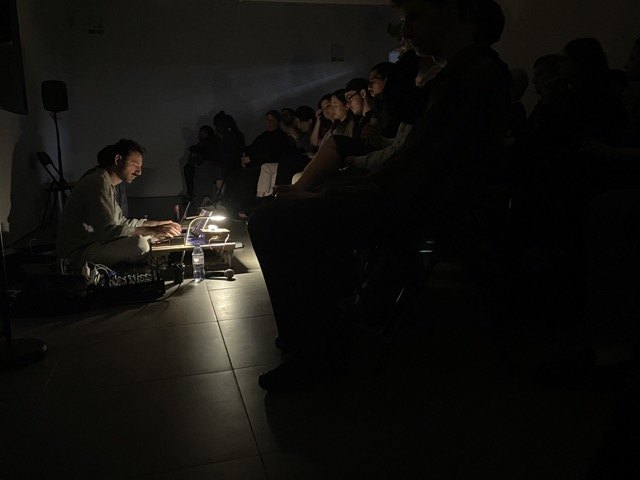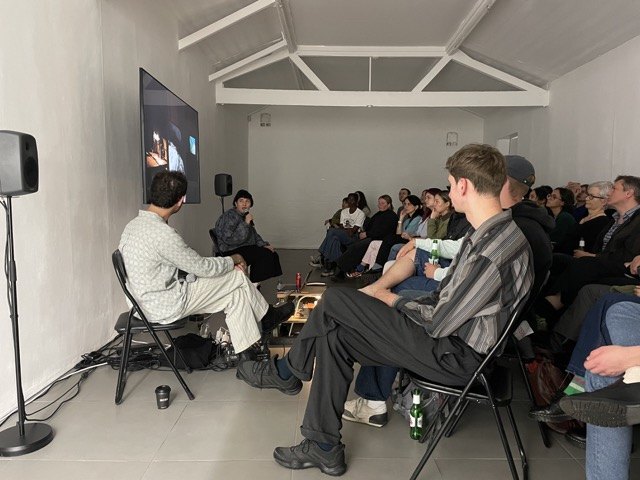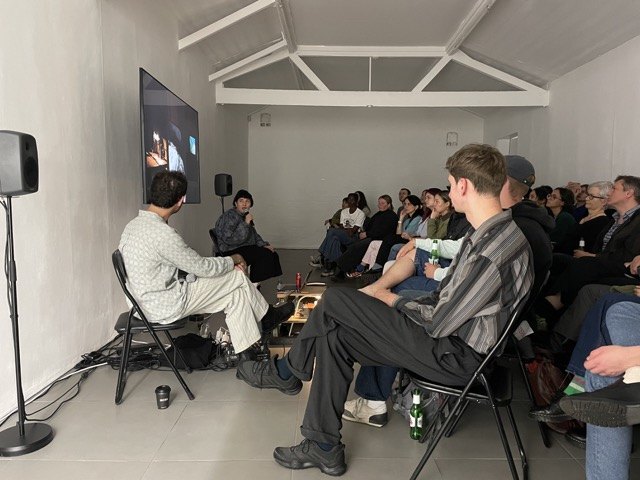The Neighbours: silenced histories of Bulgaria’s state-led violence
Krasimira ButsevaJulian Chehirian
Artist Talk and Spatial Audio Tour
03.07.2024
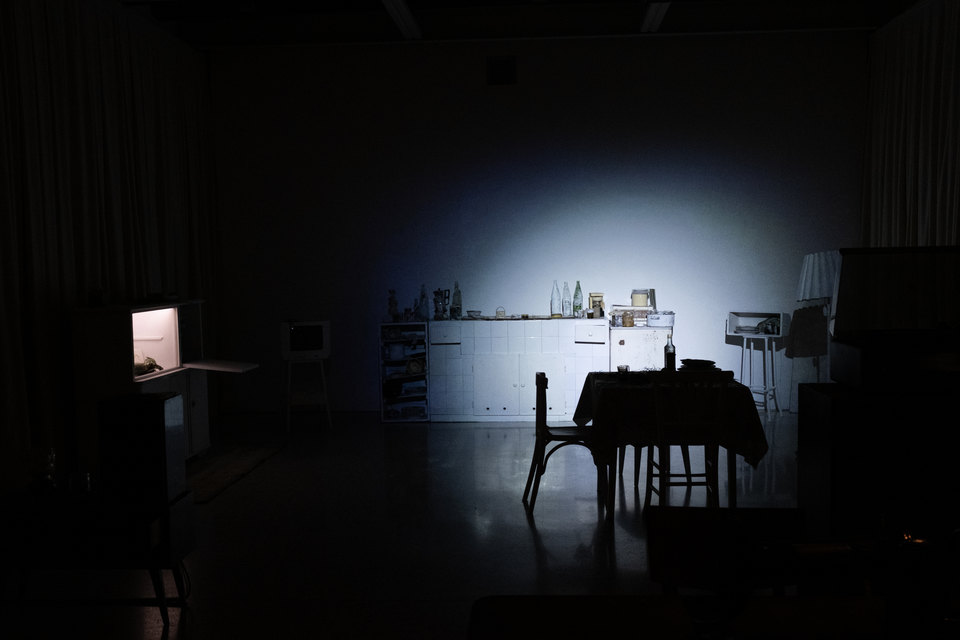
Wednesday, 3 July 2024
6.30pm promptly
Join us on Wednesday, 3 July, 6.30pm for a talk with artists and researchers Krasimira Butseva and Julian Chehirian, who will expand on the key concerns behind their project The Neighbours (with artist Lilia Topouzova, curator Vasil Vladimirov), currently representing Bulgaria at the 60th Venice Biennale. The talk continues Cell Project Space’s public programmes’ engagement with the under-acknowledged aspects of ‘Eastern’ Europe’s political history through an artistic lens. It follows Agnė Jokšė and Anastasia Sosunova’s two-person exhibition, Queer 'Eastern' European Anti-Colonial Solidarity Fundraiser, as well as CEED Feminisms research group and public programme.
During the event the artists will present a spatial audio tour of The Neighbours, sharing sounds and fragments from the installation. The sound performance will be followed by an artist talk, discussing the concepts and processes involved when working with political violence, traumatic memory, silenced histories, memorial sites and collective healing. The Neighbours is a multidisciplinary installation, employing found objects, video, and sound design, to convey the stories of those who endured Bulgarian Gulag camps and prisons (1945 to 1989). The installation is currently exhibited at the 60th Venice Biennale (open until 24th of November 2024).
The Neighbours is rooted in extensive scholarly research and more than 40 interviews conducted by the practitioners, and reimagines the survivors‘ homes — the spaces where the interviews occurred — inviting audiences to inhabit them and bear witness. The Neighbours examines how the period of socialism is publicly remembered, but also how some of these memories unfold distinctly in private spaces. In the absence thus far of Bulgarian institutional engagement with the history and legacy of state violence, the project plays a crucial role in the process of unsilencing. It also reflects on the evolving function of museums and cultural institutions in providing a platform for individual and collective stories, contributing to discussions on truth, reconciliation, and collective memory.
Krasimira Butseva is a visual artist and researcher based in Sofia and London. She is a Senior Lecturer at the London College of Communication, University of the Arts London. In her creative and academic practice, Butseva works with trauma, memory, political violence, official and unofficial history, whilst employing video, sound, photography and installation as mediums. She has taken part in solo and group exhibitions in London, Brighton, Ipswich, Portsmouth, Gosport, Pingyao, Sofia, Plovdiv, Lovech, Cape Town, Kyiv, Belgrade, Berlin, and Stuttgart.
Julian Chehirian is a multimedia artist and researcher living between Philadelphia and Sofia. He is currently a PhD candidate in the History of Science at Princeton University, USA. Julian creates site-specific multimedia installations that employ modified objects, video, sound, and experimental technologies. In his scholarship, he writes on the history of attention and psychotherapy, post-war art and transnational history. His writing has appeared in edited collections for Yale University Press, Columbia University Press, Bloomsbury, in Culture, Medicine and Psychiatry, and in The Public Domain Review.
If you require assistance to access the building or have any additional access questions please contact Annabelle Mödlinger, Production Assistant: annabelle[at]cellprojects[dot]org.
This event is supported by British Art Network (BAN). BAN is a Subject Specialist Network supported by Tate and the Paul Mellon Centre for Studies in British Art, with additional public funding provided by the National Lottery through Arts Council England.

